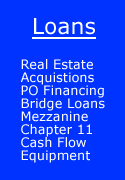
Bookmark This Site
Business Plan Basics
Many business plans fail to raise money because of the orientation of the business plan, i.e., the plan focuses on the product or service, not the financial aspects of the plan.
When we assisted with the review of over 150 business plans for a three day Venture Capital Conference for 23 venture capital companies, only 25 of the 150 plans asked for specific funding, and only 12 had specific uses of funds and exit strategies for investors. Venture Planning offers sample business plans , complete with integrated financial projections, so you can see plans that actually raised money.
Or, have your business plan reviewed and Tuned Up by a Venture Capitalist today.
How Investors Read a Business Plan
It is important to realize that a potential investor will initially spend only 5 minutes with your plan. The following areas will be evaluated, each area taking about 1 minute!- Determine the
characteristics of (1) the industry and (2) this particular company
- What other publicly held similar companies are there?
- Is there a larger company that is extremely successful?
- Is the company in a "glamour" field? (important to ensure a good public offering)
- Determine the
terms of the deal
- How much of the company is being sold for what price?
- What is the form of debt or equity being requested?
- How will the funds be used? Retire old debt (no a good idea)? Undertake new activities that will in turn increase profitability,
- Review the bottom line with special emphasis on years three through five. Earnings are reviewed to determine company's valuation
- Determine the
caliber of the people in the deal (The most single important aspect
of the business plan.)
- What is the track record of the founders and managers?
- How much balance and experience does the inner management team posses?
- How long have the members worked together?
- Who is the banker and accountant and what are their credentials?
Questions Answered by the Business Plan
- How much can I make?
- How much can I lose? (including loan guarantees, opportunity cost, and non financial considerations)
- What is unique, innovative or technologically different?
- What is the perceived value of your product versus what your product actually does?
- Why will everyone need your product or service?
- What will happen to your customers if they don't buy your product or service?
- Who says this is a good investment?
Business Plan Do's and Don'ts
- DO keep the business plan as short as possible without compromising the description of your venture and its potential. (See executive summary below) Remember venture investors are not patient readers.
- DON'T over-diversify your venture. Focus your attention on 1 or 2 key products or services.
- DON'T have unnamed, mysterious people on your management team. A "Mr. G. who is CFO of XYZ, Corp." who will join your company later.
- DON'T describe technical products or manufacturing processes with jargon that only an expert can understand.
- DON'T estimate your sales on the basis of what you can or would like to produce.
- DON'T make ambiguous, vague or unsubstantiated statements. Be precise about market size, rates, etc.
- DO involve your management team in the preparation of the business plan.
 |
"Our
goal is to provide you the best funding tools available and to get your
project
funded quickly."
Bill
McCready, CEO
Venture Planning Associates,
"Out
of the hundreds of sites offering business plan products and services, your VenturePlan
site is among the best, if not the best. "
Mike Rischard CPA, President, Agilecor
"When we received first round funding ($5 million) the VC firm asked us to show them how our financial models were created. They wanted to use OUR TEMPLATE (which we developed from the 7 Venture Capital Reports) to help them evaluate alternative scenarios for their portfolio companies!" Michael .Lay, CFO, e-Commerce Internet Company
Home
| Affiliate Program | About
VPA | Principals & Experts | Fees
Recent Projects | Venture
Capital Reports | Disclaimer | Privacy
| Site Map |
Venture Planning
Associates, Inc.
Ph: 888.404.1212 mailto:capital@ventureplan.com
copyright 1997-2006 Venture Planning Associates, Inc. All Rights Reserved





